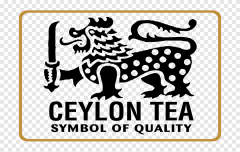How much is nuwara eliya Gaoxiang black tea per jin? How to make pure Ceylon black tea sweet?
In the Sri Lankan tea industry, specialty tea or handmade tea has always been a well-kept secret. Ceylon specialty tea is produced on a small scale and is traded among tea connoisseurs who prefer rare tea flavors. Ceylon specialty tea includes local tea market segments such as white tea, fair trade organic tea, single manor loose leaf tea and flavored dessert tea. While professional tea or artisanal tea is the fastest growing industry in the global tea industry, which is already a $50 billion-a-year business, Sri Lankan tea manufacturers and exporters have not yet reaped all the benefits of this global trend due to lack of knowledge and direction. The rise in global interest in tea has raised the status of rare tea varieties to highly cherished luxury goods or collectibles, surpassing the humble tea cans we see on supermarket shelves. One of the most famous artisan teas produced by Sri Lankan tea gardens is Rare Ceylon Silver Tips, which costs between $230 and $1500 per kilogram. Ceylon Virgin White Tea is one of the few white teas grown outside China, priced at $1500 per kilogram, making it one of the most expensive teas in the world. Ceylon virgin white tea has been shown to contain nearly 11% antioxidants. Ceylon white tea (Ceylon White Tea) produces only a few kilograms per month. For a few major tea producers, producing Ceylon white tea is a luxury, and they have the ability to invest a lot of time and technology to create one of the most popular tea varieties in the world. Although not replicated to the same extent, Fairtrade organic tea producers in Sri Lanka have also successfully overcome the challenges of tea production and export, which the Ceylon tea industry is currently experiencing.

A selected group of Fairtrade organic tea producers in Sri Lanka has been providing a steady supply of pure organic Ceylon tea to a growing number of consumers around the world who are willing to pay extra for better health and conscience. Most of Sri Lanka's organic tea traders are also small-scale tea farmers or factory owners who constantly interact with their own workforce. Their ethics of fair trade ensures that workers working in the tea garden have good living conditions. Their rights to education, health, fair pay and adequate housing have always been concerned and guaranteed by plantation management, creating a happy labour force in the production of the world's most popular fair trade organic tea. Is this a signal that Sri Lankan tea exporters have been waiting for? Is it time to throw our chips on specialty or artisan tea? Many leaders in Ceylon's tea industry agree. Dr. P Abeygunawardena, director of the organic tea industry at Ahinsa, believes that the current crisis facing the Ceylon tea industry is caused by blindly following the traditional method of supplying tea to the global market. According to Dr. P Abeygunawardena, it is time for Ceylon tea growers and exporters to identify and adapt to the changing global tea market consumer behaviour and move away from the mass production of fertilizers and pesticides riding tea organic or natural tea production industries in order to meet the global demand for tea as a healthy drinking product. "added value and increased exports of quality and specialty teas are also immediate calls," said Merrill J. Fernando, chairman of Dilmah Tea, a tea industry veteran. Insisting that a product can only represent the scale of one party, that is, in terms of quality and price, Mr. Fernando called on Ceylon tea manufacturers to invest in reducing bulk exports of Ceylon tea, more focused on export packaging from source tea and value-added tea to prevent the current setback.
Important Notice :
前街咖啡 FrontStreet Coffee has moved to new addredd:
FrontStreet Coffee Address: 315,Donghua East Road,GuangZhou
Tel:020 38364473
- Prev

How to make Ceylon black tea without bitterness and astringent Ceylon black tea proportion temperature time parameter sharing
Impregnated with Ceylon tea and Sri Lankan fruits, herbs and spices, Ceylon-flavored tea comes in many forms, flavors and blends around the world. Since people began to drink tea in the 3rd century AD, all kinds of mixed teas and different kinds of teas have been mixed with herbs, spices and fruits to enhance the taste of tea.
- Next

How many grams of Ceylon black tea is suitable for bubble? Reasons and History of Ceylon Black Tea Introduced into China
Although most Ceylon tea products on the global market come from large tea plantations, more and more small tea farmers are seeking their own niche market to produce the world's best Fairtrade organic teas. Guided by strict ethical and practical norms, these small-scale growers follow strict guidelines when growing tea.
Related
- What grade does Jamaica Blue Mountain No. 1 coffee belong to and how to drink it better? What is the highest grade of Blue Mountain coffee for coffee aristocrats?
- What are the flavor characteristics of the world-famous coffee Blue Mountain No. 1 Golden Mantelin? What are the characteristics of deep-roasted bitter coffee?
- Can I make coffee a second time in an Italian hand-brewed mocha pot? Why can't coffee be brewed several times like tea leaves?
- Hand-brewed coffee flows with a knife and a tornado. How to brew it? What is the proportion of grinding water and water temperature divided into?
- What is the difference between Indonesian Sumatra Mantinin coffee and gold Mantinin? How to distinguish between real and fake golden Mantelin coffee?
- What does bypass mean in coffee? Why can hand-brewed coffee and water make it better?
- Unexpected! Ruixing Telunsu lattes use a smoothie machine to foam milk?!
- % Arabia's first store in Henan opens into the village?! Netizen: Thought it was P's
- Does an authentic standard mocha coffee recipe use chocolate sauce or powder? Mocha Latte/Dirty Coffee/Salty Mocha Coffee Recipe Share!
- What is the difference between Vietnam egg coffee and Norway egg coffee? Hand-brewed single product coffee filter paper filter cloth filter flat solution!

